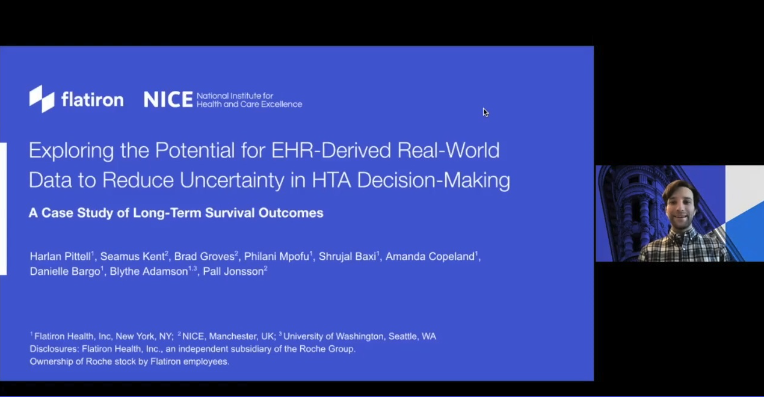
Our summary
Clinical trials are an important source of evidence for health technology appraisals (HTA). A key concern though is the uncertainty in survival due to the relatively short duration of follow-up in clinical trials, posing an issue for understanding treatment benefits long-term. Researchers from the National Institute for Health and Care Excellence (NICE) and Flatiron Health investigated how real-world data (RWD) may complement findings from clinical trials to reduce uncertainties in HTA decision-making. In this case study, the investigators focused on an immunotherapy drug in advanced lung cancer to see if RWD could have been used to address uncertainty regarding long-term survival.
Why this matters
The inherent uncertainty in health technology appraisals (HTAs) can result in suboptimal access to medical interventions by patients in need of therapies. Inconclusive cost-effectiveness appraisals can lead to delays or limited treatment coverage decisions. This study illustrates how RWE can contribute to more robust HTAs.